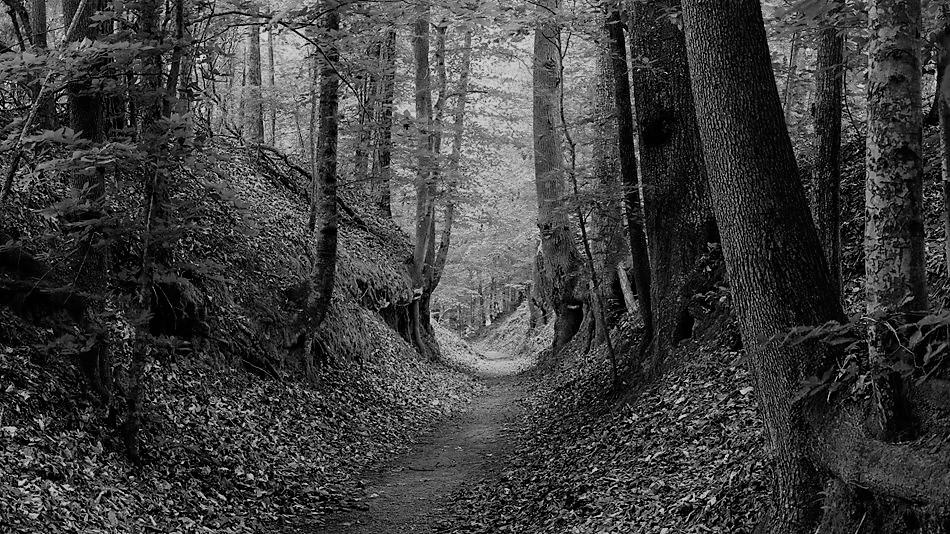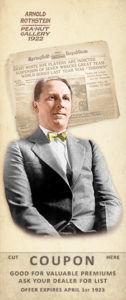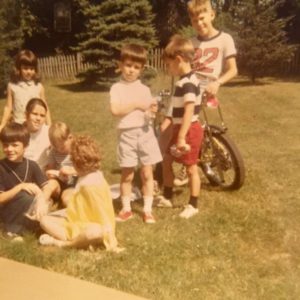John Murrell, prolific bandit on the old antebellum Natchez Trace, had a talent for masquerade. He appeared variously as an itinerant preacher, slave trader, and abolitionist, and frequently murdered his victims rather than leave witnesses. He may or may not have planned a slave rebellion meant to ensconce him King of the South.

Don’t go down to no rivers no ghosting hour. Murrell down there, a sylph, take you up, he will, slipping through swamp oak, cypress knees. Strip your Spanish gold and shinplasters from your satchel, roll your corpse in shallows where the crawfish go.
Murrell the highwayman. Murrell the revenant. Murrell the horse thief. Murrell the preacher pushing back his black preacher hat, his grin saying lord’s in heaven and salvation’s at hand, praise lord. On his hand branded HT. A long stream of tobacco mark the cross in dust. Praise lord. He preaches, exhorting, sacred harp, Lord a mighty on high, scripture-voiced. He whips the locals up. Making the crippled limp. He says, Come on down here m’am, be baptized in this hogshead. Ain’t my lord fussy. Passes the preacher hat in the clearing. White, black, Chickasaw, octaroon, melungeon, Choctaw with their brides-to-be, don’t go down. Don’t go down.
By morning horses gone. Someone’s a corpse. Along the Trace, someone’s always busy being a corpse. Horses unhitched, unharnessed from the staves.
Sells stolen horses like cornpone. Freemen ganged in chains on the block, praying their way down the river, faces like pig iron, faces like mountains. Used to be that house nigger strolled free long Natchitoches Street, head high as a water moccasin. Murrell shows his teeth don’t bite. Sells stolen house niggers like cornpone.
Murrell’s gone, up and down the Trace, Jackson’s Military Road, he went. Keelboating down to Vicksburg, Natchez, Vidalia, New Orleans. Old Arkansas territory, below the 3630. Plunder as harvest of rightful goods by men of strength. Subsisting in shadows as long as frigates. Sleeps nights at the stands, pepperbox under a pillow, squirrel guns stowed in the buckboard, preacher hat on a post, twisting blood out of shirts till staining creekbeds color of the sun. A man who knows his fate has the high hand. Came down a boy from Tennessee, he did, slick-skinned, his boy’s mouth born for larceny, folks did say. Way an egg is born to fly.
Dreams they seize you up, set you out on a bark canoe, past loess cliffs outside Vicksburg, where wildcats, gators, bears daren’t go. Outside a Delta cabin, old hounds and whores lounging, his wife a pup with legs slung over a fence, daughters gone spreading watermelon rinds in the poultry yard. A pen of stolen horses, hogs grunting like Second Coming. Black robe missionaries went native by St Catherine’s Creek in Revolutionary days, these days sons and daughters, Jesuit foreheads, Jesuit hands, go about in buckskins, breechcloths, silk top hat. Revenants too. From Loyola days. They come to him, John Murrell, pay him tribute. Tobacco. Rum. Sacks of French and Spanish coins. Flour. Sometimes a man in iron collar. He runs the southwest now, Memphis to Baton Rouge, midnight boarding flatboats in the pork trade, whiskey, no one ever knows what happens to the kid on watch, serrated knife at his throat, a single motion, his voice stilled in the talking river. Riled herons talking in the trees. Moon passing across the ancient sky. Stop at the levee camps, five masked highwaymen take every damn slave downriver, sold at reasonable discount to Choctaw and Cherokee, dressed as white as white men, their own big houses. Round up a coffle, peppermills to heads of the slavers kneeling pleading for their lives. Slavers don’t like being dead any more than any man.
Murrell. His name rises from the quicksand and the graves. Law won’t ever catch him. Revenant from El Draque days, half privateer, half scalawag, half man, seeking to avenge cruel trick of mortality. Hangings mos’ ever’y night in the woods, you know.
Somewheres. A swaying. Bodies a trash harvest. Rotting on the vine. Only the planting counts.
One night a hundred men, hundred fifty—Mystic Clan—come round his cabin in blue of a gibbous moon, set off the sleeping hounds, their deep-throated barks like gulps. Mouths eating his corn, taking his hospitality, singing Shinbone Alley, Jim Crow, motley gangs of melungeons, levee camp Negroes, Negro preachers, Spanish poltroons with Spanish beards. He holds sway, banjo playing. He walks among them. They take the whiskey like holy water. His clan. All men his. He says, Remember John Murrell. Flesh and blood. All up and down the stands, the levees, niggers take him for his word. Don’t act what you think, act what blows through you like a hurricane. Jacquerie come any day now. Any day. Look at the brand on my hand. I am free. Here Today. Look the color of my silver nitrate eye. John Murrell Emperor of the Southwest, takes his rightful throne on Gallatin Street, waving his scepter, whores come round with prayerful hands, businessmen wait to kiss the hem of his coat. Be blessed before they start the hangings, they call forces against the new empire before it can be born. All world knows John Murrell, come down Gallatin Street, every slave rise up, rise up, oh lord, let there be blood and carrion in the new age of the stars.











